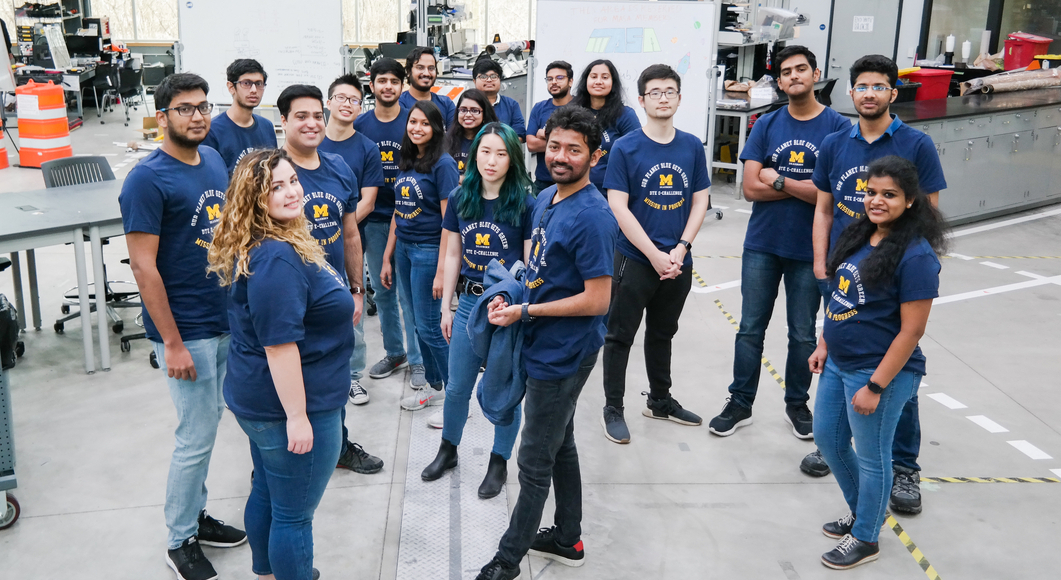UM-Dearborn wins statewide energy efficiency competition

The primary goal of a statewide E-Challenge competition is to encourage Michigan colleges to craft the best energy savings plan for their campuses. It is up to each individual university to define exactly what that looks like. A 53-member team of students, faculty and staff from UM-Dearborn decided to go about as big as they could. They audited every major building on campus — an approach that involved walkthroughs and deep analysis over the course of the winter and early spring 2020.
Lighting, complex HVAC systems and anything in between were all taken into account. The result was a 500-page report detailing dozens of specific projects with substantial returns on investment that, if implemented, could save the university $200,000 a year on its energy bills.
The scope and level of detail left an impression on judges from E-Challenge sponsors DTE Energy and the Engineering Society of Detroit, who awarded the UM-Dearborn team the top spot in the competition. Executive Director for Facilities Operations Carol Glick is thrilled with the win, and says she is particularly impressed with the collaboration between students, tradespeople, faculty and staff. But she’s equally excited about what it could mean in practical terms for the campus. This is the first time they’ve had such a comprehensive understanding of how the campus buildings use and lose energy — information that helped them identify and prioritize dozens of projects, many with payback periods of just a few years. In total, their plan would reduce electricity usage by 8 percent and natural gas consumption by 10 percent over five years — a big first step in getting UM-Dearborn to meet the U-M system’s carbon neutrality goals.
The campus team will also get a big assist from DTE to implement the plan. The E-Challenge award earns UM-Dearborn a spot in DTE’s Strategic Energy Management (SEM) program — a one- to two-year partnership that helps the campus identify low or no-cost improvements, provides technical support from DTE energy experts and offers additional incentives only available to those in the SEM program.
